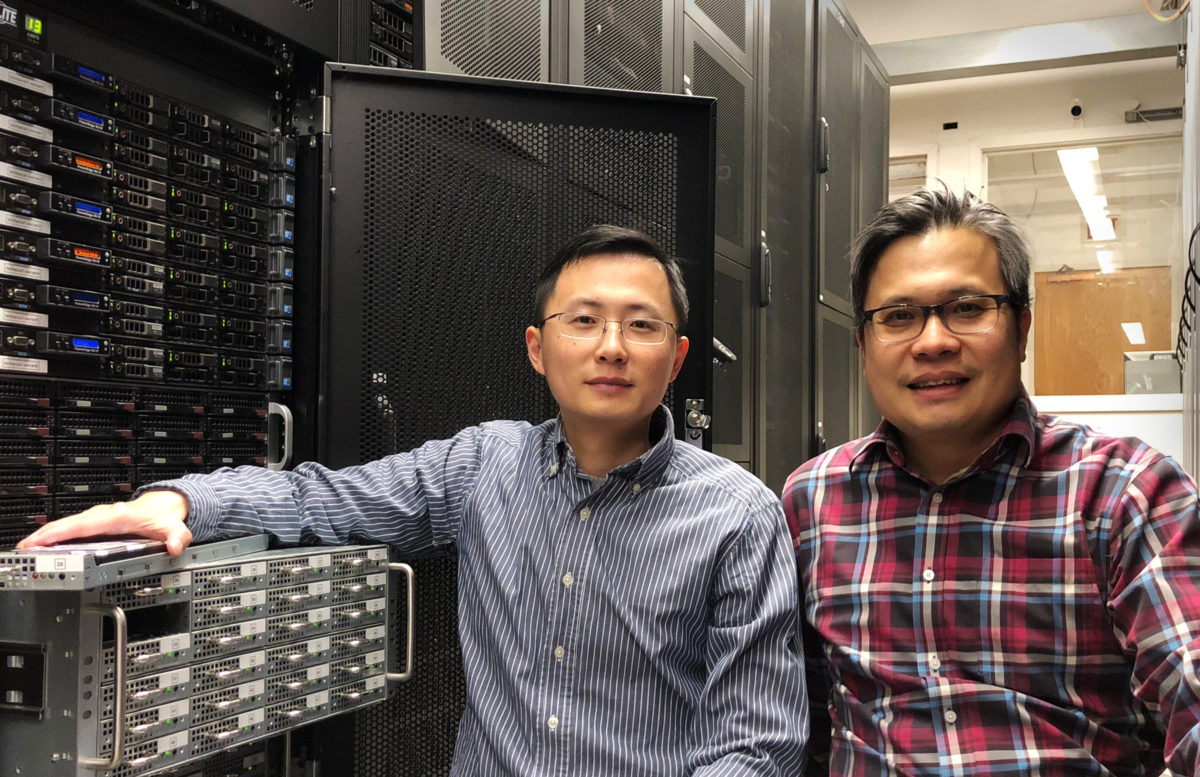I grew up in Singapore, a tropical island in the Far East. At age 20, I packed up my bags and headed to California, where I studied computer science at the University of California-Berkeley and Stanford University. The mid-1990s and early aughts were an interesting time to be in Silicon Valley as a self-professed nerd. I remember proudly wearing a “Java 1.0” free T-shirt given out by Sun Microsystems at the launch of its revolutionary new programming language called “Java,” a language I lost no time in learning.
But what I remember most vividly about the Bay Area was the startup culture.
I was in awe at the IPO of Inktomi, an internet-infrastructure company that spun out of a research team at Berkeley. Inktomi, at one time, powered the world’s internet search infrastructure. It was my first realization that university research can really shape and change the world. As I went across the bay to Stanford for my master’s degree, I had the good fortune of working at VMware during its formative years as a university spinoff, learning the ropes from a Stanford professor and his highly talented team of engineers who later developed a multibillion-dollar company behind what we call “cloud computing” today.
My leap
While my interests in startups were shaped by my experiences working in Silicon Valley, it would take me a whole 13 years, after my Ph.D. studies at Berkeley and promotion to Associate Professor at the University of Pennsylvania to take my own entrepreneurship plunge.
In 2013, Gencore Systems was born out of research work that my students and I did at Penn. We built a piece of easy-to-configure software that allowed us to understand complex application interactions simply by observing network traffic. We soon realized the hard way that cool technology does not make a business, and after numerous pivots, we converged on a good use-case based on microservices performance monitoring. Gencore was born and raised in Philly and backed by StartUp PHL. The company moved to San Francisco after two years, raised a Series A, rebranded as Netsil, and was successfully acquired 2.5 years later by Nutanix Inc. (ironically, a competitor of VMware).
The most important lesson I learned from my first startup experience is that a technology, no matter how sophisticated, does not make a company, unless one ties the technology to a compelling business case.
I take great pride in seeing our own Penn Engineering students (doctoral, master’s and undergrads) lead Netsil to great heights, further than I myself could as a professor. That to me is my most satisfying part of the Gencore/Netsil’s story.
I am now working on my next startup, Termaxia, backed again by StartUp PHL and Ben Franklin Technology Partners. I cofounded Termaxia with a former Ph.D. student of mine, addressing a pain point in the costs of running exabyte-scale storage systems in data centers. We offer a promising software-defined storage solution that consumes little power but outperforms competitors on the market by a large margin.
More academics need to take the entrepreneurial plunge
Looking ahead into the future, I continue to be very excited about the IT infrastructure space, which is permanently ripe for disruption.
The future of technology in Philadelphia is brighter than ever. We have the talent to compete with the Silicon Valleys, Seattles and the New York Cities of the world. To get there, we need to see more academics take the entrepreneurial plunge in Philly, leveraging the intellectual capacity at our universities.
Crossing the academic chasm is hard, but it need not be lonely.
In fact, it takes a village to succeed. We need an ecosystem of investors who are willing to take bets in early stage startups led by technical founders, investors who have the domain knowledge to see far into the future of technology. We need more success stories in the B2B space. We also badly need to keep our talent in town. At the top of my wish list is to see more of our young engineering talent remain in Philly. I believe this will happen in the next 10–20 years, as startups thrive, and we create the kind of jobs that will keep our finest here.
Technical.ly’s Editorial Calendar explores a different topic each month. The August 2018 topic is Technologists of Color. These stories highlight the contributions of technologists and entrepreneurs of color across Technical.ly’s five markets.
Before you go...
Please consider supporting Technical.ly to keep our independent journalism strong. Unlike most business-focused media outlets, we don’t have a paywall. Instead, we count on your personal and organizational support.
Join our growing Slack community
Join 5,000 tech professionals and entrepreneurs in our community Slack today!

The person charged in the UnitedHealthcare CEO shooting had a ton of tech connections

From rejection to innovation: How I built a tool to beat AI hiring algorithms at their own game

Where are the country’s most vibrant tech and startup communities?


